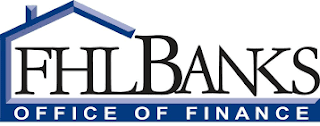Federal Home Loan Bank System (FHLB) - FHL banks offer loans to
their members, which are other banks, credit unions, community
development financial institutions and insurance companies. The members
have to provide collateral for their loans, and that collateral is
typically mortgage loans and other assets. Each FHLB is required to
develop a community lending plan that explains how the bank will address
the needs of the community it serves.
There are a dozen FHLBs. They are headquartered in Atlanta, Boston, Chicago, Cincinnati, Dallas, Des Moines, Indianapolis, New York, Pittsburgh, San Francisco, Seattle, and Topeka.
There are a dozen FHLBs. They are headquartered in Atlanta, Boston, Chicago, Cincinnati, Dallas, Des Moines, Indianapolis, New York, Pittsburgh, San Francisco, Seattle, and Topeka.
Through its Affordable Housing Program, FHL banks
grant money to local banks involved in the purchase, construction or
rehabilitation of affordable housing. Banks then partner with local
developers and community organizations to build or renovate housing. The
program provides a source of funding for the construction of affordable
housing in the United States.
The Community Investment Program offers below-market-rate loans to members for long-term financing for housing and economic development aimed at low- and moderate-income families and neighborhoods. Those projects may include roads, retail development, and other infrastructure, in addition to business loans.
FHL banks also offer programs such as the New Market Tax Credit Initiative, Economic Development Grants, Urban Development Advances, Rural Development Advances, and Letters of Credit.
To join an FHL bank, financial institutions typically buy stock in the bank. Each FHL bank has its own board of directors and is regionally focused. The Federal Housing Finance Agency regulates FHL banks
The Community Investment Program offers below-market-rate loans to members for long-term financing for housing and economic development aimed at low- and moderate-income families and neighborhoods. Those projects may include roads, retail development, and other infrastructure, in addition to business loans.
FHL banks also offer programs such as the New Market Tax Credit Initiative, Economic Development Grants, Urban Development Advances, Rural Development Advances, and Letters of Credit.
To join an FHL bank, financial institutions typically buy stock in the bank. Each FHL bank has its own board of directors and is regionally focused. The Federal Housing Finance Agency regulates FHL banks


Posting Komentar